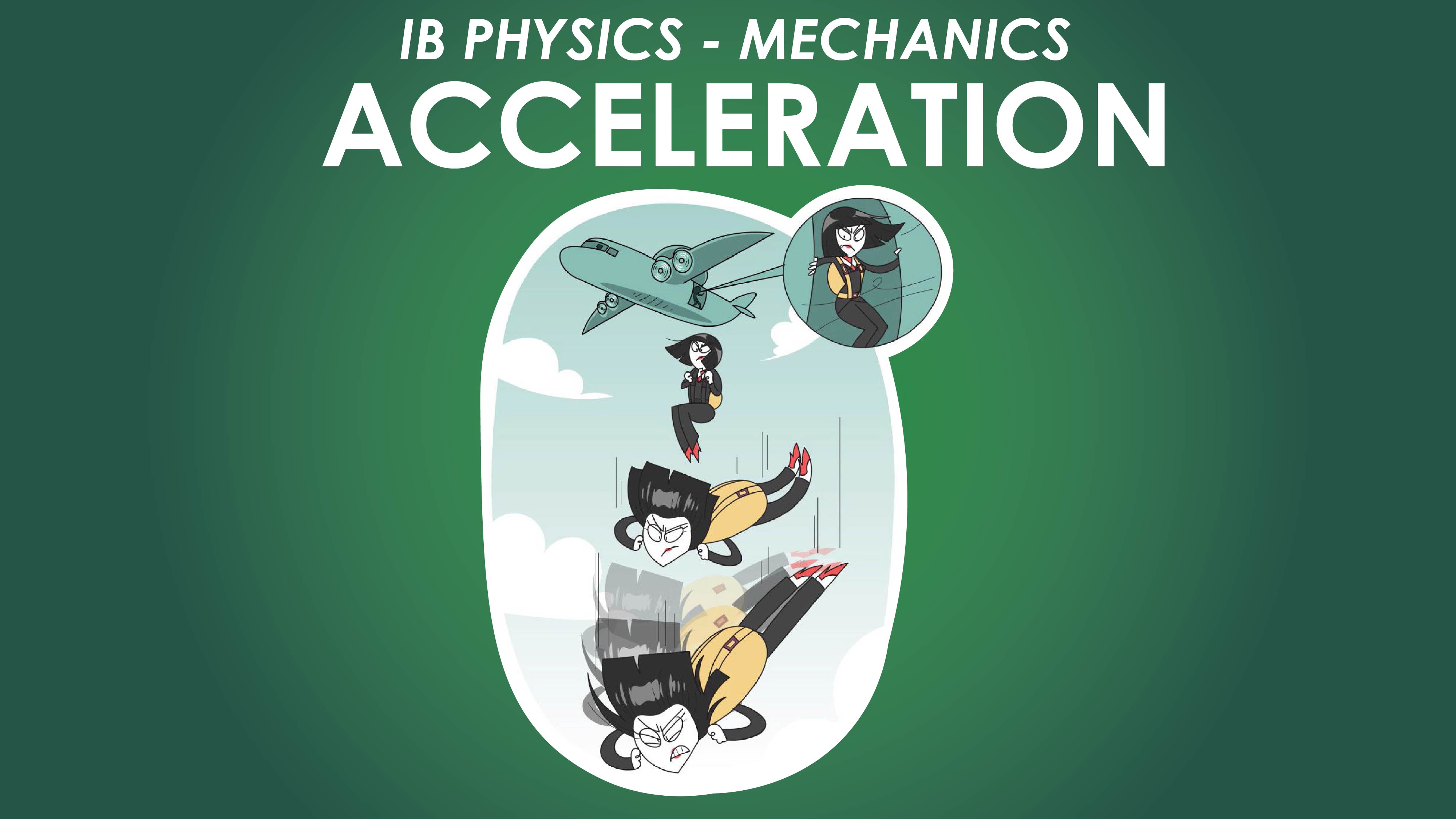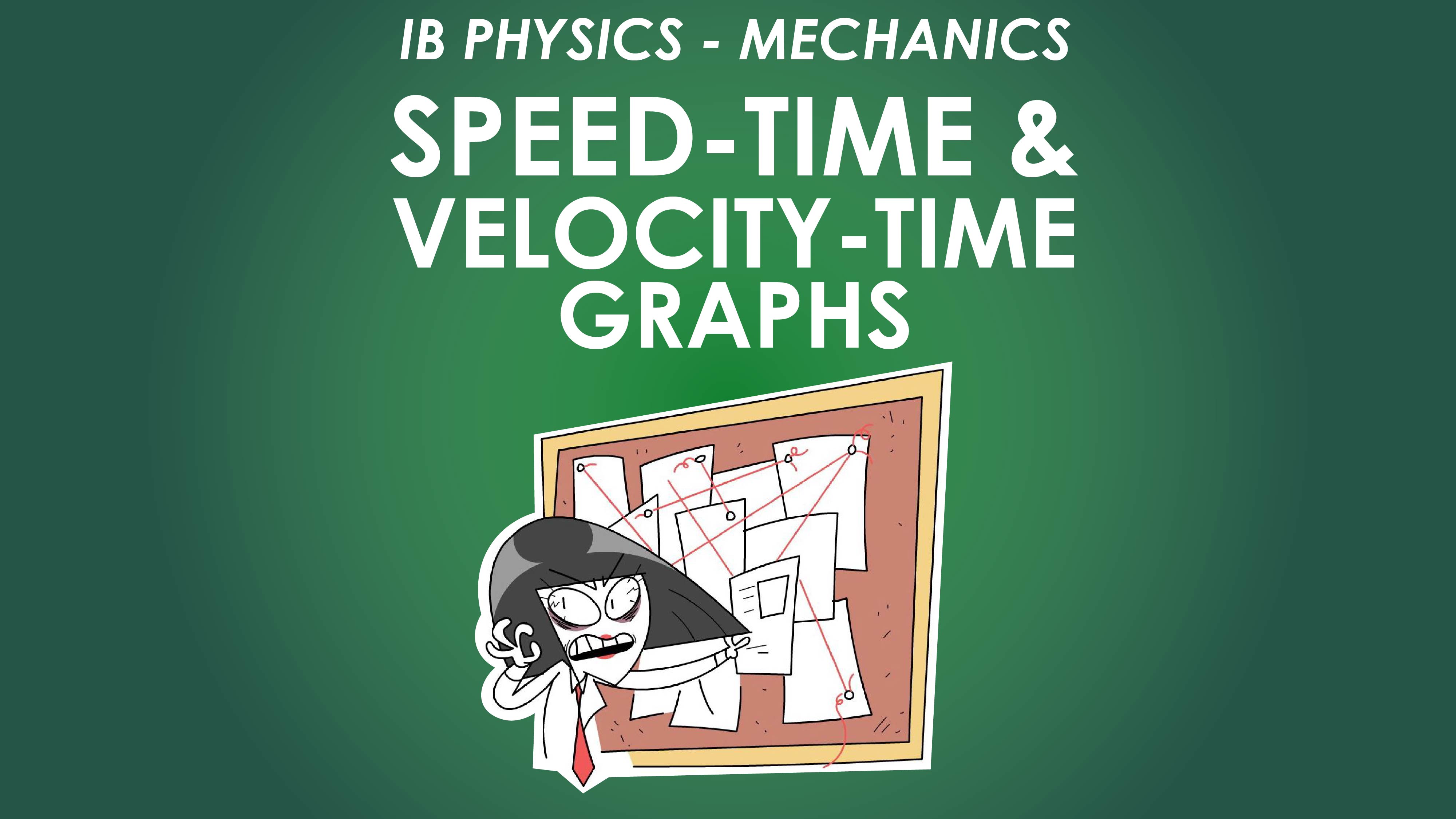IB Physics SL - Mechanics
IB Physics SL - Mechanics | IB Physics SL
 2:00:42
2:00:42
Guide for Students
Are you struggling to stay awake in your Biology class? Afraid to open your Chemistry and Physics textbooks? We get it – some of those complex terms and tricky equations make no sense!
Don’t worry, our videos are designed by educational specialists, who stop at nothing to make standard and higher level science engaging! You’ll be captivated by our stimulating animations, which accompany easy examples and enriching analogies.
With our detailed explanations, you’ll master complex scientific concepts and ace your internal assessments! We’ll show you how to tackle a wide range of exam-style questions and impress your examiners!
Follow these tips to get the most out of our videos:
1. Before you start studying the topic at school.
Why not watch our lessons in the holidays or even the night before covering a topic in class? You’ll get an idea of the big picture, even if you don’t understand everything the first time.
Not sure which lessons are the best to watch in advance? Ask your teachers if they have any recommendations based on the topics that will be covered next term. Otherwise, you can scroll through the series playlist, which lists all the lessons in order.
When you watch our videos for the first time, jot down notes that you can refer to at school. Focus on the definitions, and summaries at the end of each video. You’ll be one step ahead of your class and ready to ask your teacher questions on the topic, or even better, to answer your teacher’s questions.
2. Revise a topic after covering it in class (or if you miss a class).
Is your class moving through the course a bit too quickly? Do you keep forgetting some key details? Maybe you don’t quite understand the topic yet…
If this sounds like you, then you’ve come to the right place! Pick a video and watch it as many times as you like. Feel free to replay challenging sections and skip parts that you already understand.
To keep on top of things, watch our lessons within a week of covering the topic in class. Refresh and consolidate your understanding of each area before completing your homework and starting assessments. This way, you’ll improve your understanding of complex concepts and pick up on those nitty-gritty details.
Don’t forget to attempt the sample questions in the video on your own! Pause the video and draft up your own response. Then, keep watching the video and compare your response to the sample answer that we’ve provided. This will show whether you’ve mastered the content, or if there are areas that you need to revise.
3. When preparing for an internal assessment.
Caution: do not leave your internal assessments to the last minute. Watch our videos and get a head start!
Working on your IA can be hard. That’s why our science skills lessons teach you valuable techniques for completing your individual investigation. Watch our videos on experimental design as you plan your investigation and write up your research proposal. After you have conducted your experiment, watch our data analysis videos to learn how to interpret the data and present it in figures and tables.
Finally, watch our lessons on scientific writing when you work on your final report. We recognise that the conclusion and evaluation sections of your IA can be tricky. For the conclusion, we’ll show you how to present your findings in a logical and structured manner. Once you reach the evaluation, our videos will guide you through assessing the strengths and weaknesses of the entire experiment.
4. When preparing for an exam.
Have you ever felt confused when reading an exam question? Or maybe you wrote a good answer, only to find that none of your points appeared in the mark scheme! At Schooling Online, we want you to interpret exam questions with ease and answer them effectively.
When you watch the “Exam-Style Questions” section of our videos, pay attention to the list and how we interpret different questions. You’ll see similar questions in your Biology, Chemistry and Physics assessments.
But how do you approach these questions? As a rule, we describe the best ways of tackling the problem. As you become more comfortable with answering questions, you’ll want to learn how to maximise your marks. We’ll teach you how to communicate effectively, using tables, labelled diagrams and a logical progression of ideas – exactly what examiners want!
Don’t forget to watch our science skills lessons to discover our tips and tricks for scoring full marks in nature of science and data analysis questions!
Guide for Educators
Teaching science can be challenging, whether it’s Biology, Chemistry or Physics. Your students may experience frustration as they struggle to grasp many abstract concepts. Even worse, students may disengage when they find the content to be dry or boring.
At Schooling Online, we offer stimulating material that will help your students to navigate the IB science syllabuses. We believe that science can be taught in fun and accessible ways, while enhancing students’ understanding of key ideas.
Our videos engage students in active learning and cater to a variety of learning styles. Together, we’ll walk your students step-by-step through the syllabus. We encourage you to integrate these videos into your classroom as an effective teaching tool.
Follow these tips to get the most out of our videos:
1. Integrate our videos into your school’s science curriculum.
Our videos cover all the topics and options outlined in the IB syllabuses for standard and higher level Biology, Chemistry and Physics. At Schooling Online, we want every student to gain a comprehensive understanding of the subject material by the end of Year 12.
Each video covers a distinct concept and represents a stepping stone to mastering the IB. Of course, our comprehensive lessons also address the practical elements of science, including internal assessments.
At the start of each video, we identify the syllabus dot points to be covered. You can refer to this when integrating our videos into your weekly, monthly and yearly teaching plans. The possibilities are endless when our videos are at your fingertips!
We know that students can be reluctant to complete their homework. So why not give them something engaging and enjoyable to spark their interest in science? Sign up your school with Schooling Online and set lessons for students to watch before starting class, as revision or homework.
2. Use our videos as an interactive teaching tool as you cover topics in class.
Turn your classroom into an interactive environment by watching each video in short segments. Pause the video at the beginning or end of each key section and open a discussion with your class. Ask students the following questions to actively engage them in the learning process:
- What key words were mentioned in this video?
- What do these scientific terms mean?
- What is the purpose of each component in their experimental setup?
- What examples, analogies and models have they used in this video? Are they suitable?
- What were the key ideas covered in this video?
- How would you explain these key ideas to your peers and younger students?
- Was this video relevant to any of the practical investigations that we have conducted in class?
Do the ideas in this video relate to any other topics that we’ve studied in class?
We encourage you to gauge students’ responses to assess their understanding of each concept. Our lessons provide valuable opportunities for formative assessment, so you won’t need to wait for a crucial assignment or exam!
You can also pause the video to identify information that students should commit to memory. At the end of each video, ask students to write their own half- to one-page summary of what they have learned after viewing the lesson. We recommend that you take this opportunity to clarify areas of confusion and elaborate on important concepts that will reappear in future topics.
3. Prepare students for internal assessments.
Individual investigations are a great way for students to get involved in Biology, Chemistry and Physics. We want to ensure that students feel prepared to plan and conduct investigations before getting their hands dirty. Like you, we want students to develop their independent critical thinking and problem solving skills in a motivating and inspiring environment.
To prepare students for their internal assessments, we’ve created high-quality videos that support them in developing key scientific skills. These lessons can be viewed at home or in class, prior to participation in an individual investigation.
We recommend that you pick relevant science skills videos to show in class as students navigate each stage of their internal assessments. This prepares students to develop and apply their scientific skills in their investigation and report writing. For example, you could play our videos on experimental design in class before students begin writing their research proposals.
Our skills videos guide students through all the essentials, from generating a hypothesis to identifying experimental variables and assessing the accuracy, reliability and validity of experiments. At the same time, we teach students how to structure their reports and communicate the findings of scientific investigations.
4. Use our videos for exam preparation.
Exam time can be stressful for you and your students. But there’s no better antidote to stress than being prepared. With our lessons, your students will complete their exams with flying colours! We advise you to play our videos when revising over content in class. You may also assign videos for students to review at home in preparation for an assessment.
We want students to feel comfortable when approaching exam questions, so we’ve included them in our videos. When showing our videos in class, pause after the sample question is read and ask students to interpret the question and discuss potential answers. If appropriate, highlight the exam strategies demonstrated in our sample answers. This will prepare your students to answer similar questions in their assessments.
Arguably, nothing is harder than a multiple choice question on estimation… That is, until you try to propagate experimental uncertainties! Stress no further, because our extensive range of videos will explain everything in simple details. After completing this topic, you’ll be ready to conquer the Physics IA and the other topics!
We all know that superhero movies bend the laws of Physics. Suspend your disbelief no further and learn about motion through Vector Man’s X-ray vision. In no time, you’ll be an ace at analysing graphs of motion and projectile motion calculations!








